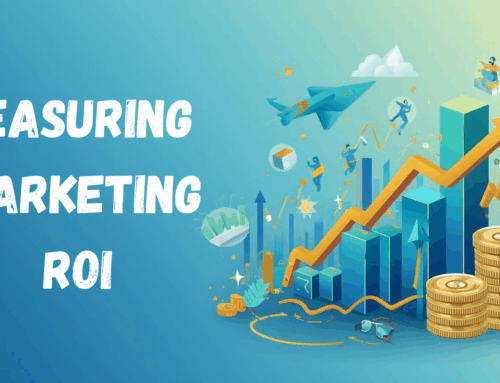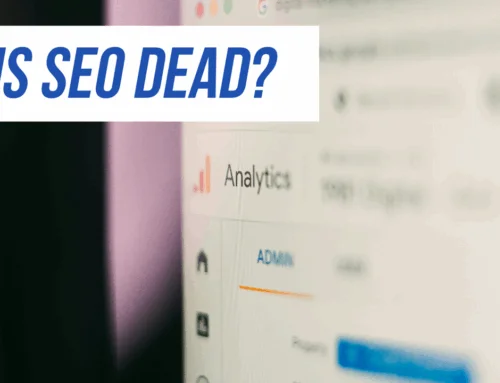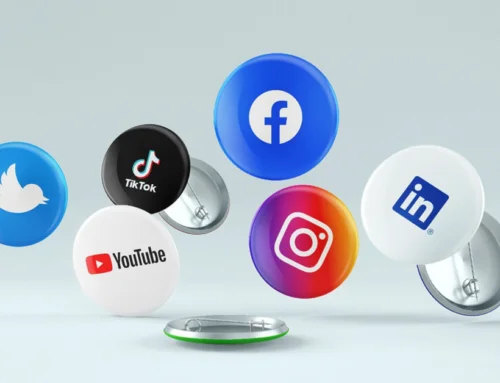Summary
This post covers several ways that AI can enhance your marketing efforts, shares examples of how organizations are already taking advantage of AI and explores how to mitigate the risks.

Harnessing the Power and Mitigating Risks of AI in Marketing
There’s a lot of conversations occurring about how artificial intelligence (AI) can be used to improve and accelerate marketing efforts. At the same time, professionals are also pondering the risks of AI—from security breaches to copyright infringement and intellectual property rights. Some are also concerned that AI will replace human efforts (which I’ll explain why that isn’t exactly so). In this article, we’ll cover several ways that AI can enhance your marketing efforts, share examples of how organizations are already taking advantage of AI and explore how to mitigate the risks.
Marketing professionals can leverage AI in various ways to enhance their marketing efforts. Here are some high-level strategies:
1. Strategic Thinking and Decision Making: AI can help think systemically and identify the larger impacts of work on the organization. It aids in gathering information quickly, making informed decisions and prioritizing work to remove barriers. When you can complete work faster, you can gain momentum and accomplish more.
2. Crafting Impactful Communications: AI can assist in articulating effective messages, influencing the audience, and determining the correct delivery method. Often times, we get too comfortable with the marketing practices that we’ve relied on for years. AI can prompt us to think of new ways to communicate. Not only is it helpful to expand how we communicate, but it’s also important to test new ways to market and reach younger generations. One way to do this is using prompts like “tailor this message/article/pitch to Generation Z buyers who live in X city and have recently purchased Y.” You may be surprised at how easy it is to take vanilla information and target it to your ideal buyer.
3. Understanding AI Fundamentals: Gaining knowledge in AI concepts, how AI drives innovation, and how to get started with AI can be crucial for marketing professionals. The more you practice, the more intuitive the tool becomes. Plus, using AI more allows the technology to learn and deliver more. It’s literally feeding the machine.
4. Data Analytics: Especially useful for medium businesses and enterprises, AI can help gather information from all your departments and business units and create insights relevant across the organization. Why is this powerful? With pockets of data buried in different business units, it’s challenging to know what, when and how to share across large organizations. AI can gather information from your company SharePoints, intranet sites and other shared, internal files and organize the data in a usable format. In using Microsoft Copilot, we were pleasantly surprised to see that AI even referenced the sources, so we could give proper credit for the info. Further, we could reach out to those content owners for further discussions. That’s impactful.
5. Automation: Streamlining and expediting marketing efforts frees up time and empowers marketers to focus on strategic work that adds value. For example, if you have a newsletter subscriber list, when newcomers sign up, what kind of experience do they have? Automated responses can be generated to welcome them to your community. Based on the type of information you request from subscribers, AI can analyze interests and behaviors, and recommend content that may be of interest to those subscriber segments.
6. Content Generation: When I started researching for this article, I began with some simple prompts in Microsoft Copilot to get me started. Then, I chose some of the findings that seemed most relevant and aligned with my experiences, edited the information and published the post. (Okay, there were a few rounds of edits.)
7. Analyzing Subscriber Interests: We use MailChimp to manage our email subscriber list as well as to create and distribute our email newsletter. Luckily, MailChimp is helping customers like Tell Your Tale Marketing to put AI to good use.
According to MailChimp, “AI can track the value generated by each email you send and analyze the frequency of your efforts to help you build an optimized schedule… Other insights you should consider are which contact methods are most useful, which types of products get the most responses, what kinds of email headings work best, and much more. Not only can AI tools track various insights for you, but they can also help you figure out which additional insights are worth investigating.”
8. Customer Experience: Putting customers first and making it easier for them to work with you, while accomplishing their goals can be powered by AI. This in turn enhances the overall customer experience. We love the idea of capturing customer inquiries and feedback from online chats and leveraging those insights to strengthen frequently asked questions (FAQs) and even new product innovations. How better to lean into customer conversations and use AI to create offerings that customers really want?

Mitigating Risks of AI in Marketing
Using AI in marketing comes with several risks that professionals should keep in mind. One of the most discussed issues is data and privacy concerns. Many AI tools scour the Internet (among other sources) and then the collected data is released to the public domain. What if an employee used AI to do competitive research on a product or service that your company is developing? Depending on the AI tool’s settings, the name of your innovation and sensitive information about it could be released to the Internet, letting the competition get an early peek at your upcoming release.
Fortunately, some organizations are helping to safeguard sensitive information.
“Major PC manufacturers have announced next-generation AI PCs with NPUs that run at 45+ tops that allow users to run AI locally on the device, instead of the device calling out to the cloud,” Trent Salch of Tell Your Tale Marketing said. “This protects your data and private information.”
While conducting research with AI’s help can certainly accelerate efforts, a human should still fact check the information and be sure to credit the corresponding sources appropriately. This can help ensure the accuracy of your information and prevent intellectual property infringement. In 2023, an attorney used ChatGPT to prepare a filing for a personal injury suit to his own detriment.
According to Molly Bohannon, a staff writer for Forbes, “The lawyer for a man suing an airline in a routine personal injury suit used ChatGPT to prepare a filing, but the artificial intelligence bot delivered fake cases that the attorney then presented to the court, prompting a judge to weigh sanctions as the legal community grapples with one of the first cases of AI ‘hallucinations’ making it to court.”
Our stance is that AI won’t replace people; however, people who aren’t using AI will be left behind. It’s important for marketing professionals to stay informed about the possible risks and mitigate those threats. Still, marketing experts can not only improve efforts and accelerate marketing campaigns by leveraging the power of AI.
For more information about amplifying your marketing, contact us.











Leave A Comment